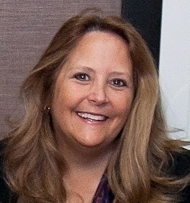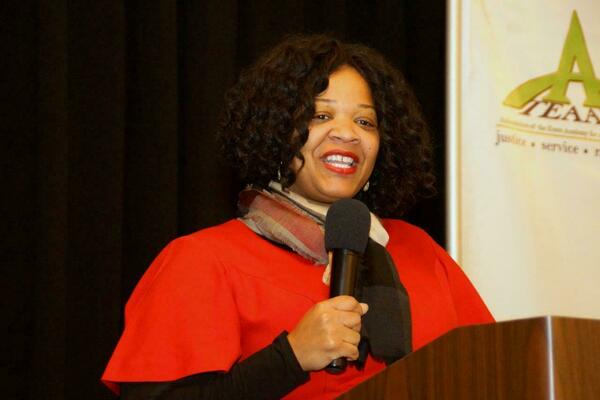Nothing we do would be possible without our service provider partners. Behind the scenes of every LEO research project is months of planning and preparation and then sometimes years of faithfully running the intervention we are studying. A commitment to research is a commitment to a journey of learning.
But often, long before a study officially concludes and we’ve analyzed the data, the providers we collaborate with can see the fruits of their research labor. Some of our partners shared how engaging in research is already boosting their missions of service.
Standing out from the crowd
Evidence-based programs are rare, so collaborating with LEO gives our partners an opportunity to stand out from other social service agencies across the country. Recovery Resource Council in North Texas is distinguishing itself by testing whether financial incentives can help veterans stay engaged with prescribed counseling. CEO Eric Niedermayer says, “Having a partnership with LEO provides us a huge opportunity to enhance the differences between us and our peers.”

Vicki Niedermayer, CEO of Helping Restore Ability, agrees. Her organization provides home healthcare services for people living with a disability and partnered with LEO to learn how to encourage caregivers to expand their knowledge and skills through voluntary training. Vicki cites her agency’s relationship with LEO as the reason Helping Restore Ability was named a “Best in Class” healthcare provider by Aetna’s National Medicaid Partnership Program. “Thanks to this exposure,” she says, “our staff have been invited to speak at our state Association of Home Care & Hospice conferences, addressing the enhanced quality of life for our clients that results from our evidence-based programs. After our project with LEO, we were invited to participate in a statewide task force charged with identifying best practices and providing input into state policy decisions.”
Strengthening reputability
When organizations partner with LEO, it shows the world that they are committed to real impact by objectively measuring their work and applying what they learn. This can strengthen their reputation in their communities and among their industry peers. The Excel Center, a supportive school for adults pursuing a high school degree, is one such organization committed to building and using evidence. Vice President Betsy Delgado has seen the resulting reputational boost firsthand: “Evidence instills confidence with community members and stakeholders, while helping us make improvements and nimbly pivot our focus and resources based on what we learn from the research.”
Eric Niedermayer takes a similar view: “It is critical to have external partners that will objectively quantify the results of our innovative strategies. LEO gives us the research resources that we cannot afford on our own and enhances our credibility with government contractors and funders. The involvement of the LEO team adds a significant level of expertise and national recognition to our efforts.”
Building connections
Working together can help both LEO and social service organizations make important connections for more learning and impact. Take King County, Washington as an example. Since embarking on its first research project with LEO in 2017, the county has brought other study ideas to the table. As a result, King County is a hub of learning about increasing transportation access for low-income community members and decreasing homelessness for youth and families. Carrie Cihak, Head of Learning and Impact, Strategy, and Partnerships for King County Metro, has watched that relationship grow:

“Our evidence-building work has deepened together, and we are able to generate useful research much more quickly with each project, as LEO builds its expertise and relationships in King County and we integrate data across more projects. Plus, we really enjoy working with LEO researchers and other staff who provide critical support to our research projects! The long-term partnership with LEO means that King County’s transit agency has the opportunity to follow up on these research results with program innovations that we will also rigorously evaluate.”
LEO’s projects have also introduced organizations to other service providers doing similar work, as Vicki Niedermeyer attests to: “Our team is becoming known for innovation and data-driven success, and universities from across the state are asking us to partner with them. Managed Care Organizations are now seeking us out and are in fact working with us exclusively. This would not have happened without the partnership we have with the LEO team.”
Gaining resources

Organizations also find that their work with LEO helps them raise resources. Karla McCullough, Executive Director of the Juanita Sims Doty Foundation, describes one of the ways the LEO research partnership is impacting her mentoring program for Black boys and young men: “This data, I believe, will be the missing piece that will allow us to solidify a large government grant for our mentorship programs.”
More and more local and national funders are looking to invest in services that are evidence-based or that are engaged in building evidence. Partnering with LEO can be an important step in fulfilling the expectations of a visionary philanthropic sector. Bertina Ceccarelli, CEO of the tech training organization NPower, says: “We know from the outcomes data we have collected for several years that our graduates outperform those from community colleges and even many four-year colleges on measures of job placement and income. However, without the formal validation of an external study, we cannot optimize our funds development.”
Linda Burger, CEO of Jewish Family Service, also attests to the role that third-party evaluation can have on raising resources: “Increasingly funders of our services want to see evidence that the interventions we are using are evidenced-based and demonstrably effective. Partnering with LEO is helping us provide objective evidence that we are having a measurable impact on the lives of the clients we serve.”

At LEO, we find inspiration for our work in the Catholic value of subsidiarity—the idea that those closest to a problem are best suited to solve it. We believe that our social service provider partners are key to understanding how to end poverty, and we embrace the bottom-up solutions that Recovery Resource Council, Helping Restore Ability, The Excel Center, King County, the Juanita Sims Doty Foundation, Npower, Jewish Family Service, and so many others are creating. We are honored to partner with them to test their ideas, build evidence, and share what works with more people who need it.